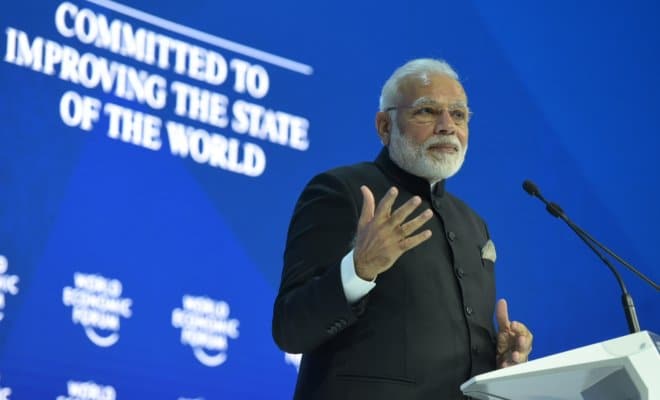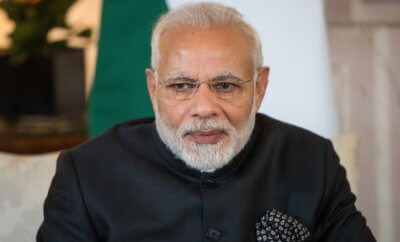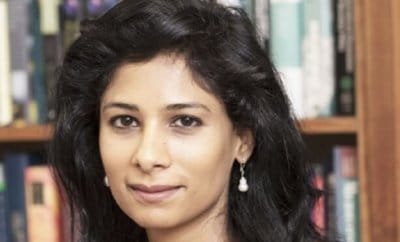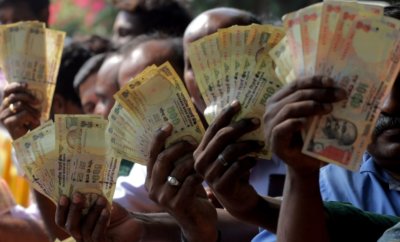Business
Protectionism As Dangerous As Climate Change, Terrorism: Modi at Davos

Indian Prime Minister Narendra Modi at World Economic Forum in Davos, Switzerland on Jan 23, 2018.
IANS
Indian Prime Minister Narendra Modi spoke against isolationism and anti-globalization during his plenary speech at the World Economic Forum in Davos.
Many communities and countries are becoming self-centered, Prime Minister Narendra Modi said while referring to the growing protectionism and shrinking globalization across the world during his plenary speech at the World Economic Forum (WEF) in Davos, Switzerland, on Jan. 23.
Modi arrived in Davos on Jan. 22, with the largest ever Indian delegation at the event, where the world’s elite business and political leaders have gathered to strengthen trade ties and address global issues. Modi is the first Indian prime minister to visit the WEF in 20 years and the first one to make the plenary speech.
These outlooks and prerogatives are as dangerous as climate change and terrorism, Modi said. While everybody speaks of an interconnected world, the charm of globalization has been dimming, he added. The agents of protectionism are standing opposed to globalization, he further said, adding that they not only want to stop globalization around them but want to stop the natural flow of it. As a result of these policies, there are new tariff and non-tariff barriers that have become prevalent. There has been a slowdown in bilateral and multilateral trade negotiations, foreign investment has become slow in most countries and there has been a decrease in global supply chains, Modi said.
Modi’s emphasis against the growing trend of isolationism across the world can also be seen as a critique of the United States and the United Kingdom. His pro-globalization stance comes even as the United States and the United Kingdom have been accused of trying to stem the flow of immigrants to their shores.
Opening Plenary with Narendra Modi, Prime Minister of India https://t.co/vtdsuHPeyr
— World Economic Forum (@wef) January 23, 2018
The solution to this worrisome situation about globalization is not in being isolated but in understanding and accepting change, he said, adding that with changing times one must develop agile and flexible policies.
For a country like India, which has varied cultures, languages, religions, food, and clothes, democracy is not just a political setup but a way of life. Indians understand the need for accepting unity in diversity, Modi added.
Earlier in the speech, he said that it was worrisome to differentiate between a “good” and “bad” terrorist. “Terrorism is dangerous. It is worse when people say there is a difference between ‘good’ and ‘bad’ terror. It is painful to see some youngsters getting radicalized,” he added.
While welcoming foreign investors he said, “We have pledged to end license raj, we are removing red tape and laying out the red carpet.”
PM @narendramodi welcomed by Swiss President @alain_berset and Professor Klaus Schwab, Chairman of the @wef ahead of his address at the Plenary session in #Davos. #IndiaMeansBusiness pic.twitter.com/2ECU7VngKm
— Raveesh Kumar (@MEAIndia) January 23, 2018
At the WEF, Modi intends to promote India as an investment destination for the world and is hence addressing the global elite to stop the anti-globalization measures.
While India tried to promote itself as a diverse and globalized nation, the WEF said in its study about approval ratings of various countries that India has 53 per cent positive influence over the world, a 2 per cent decrease since last year. In this new study about approval ratings of various countries, India ranks no. 7.




You must be logged in to post a comment Login